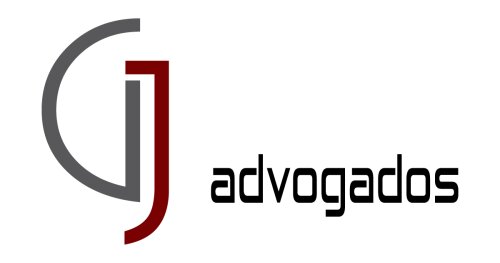Best Antitrust Lawyers in Portugal
Share your needs with us, get contacted by law firms.
Free. Takes 2 min.
Or refine your search by selecting a city:
List of the best lawyers in Portugal
About Antitrust Law in Portugal
Antitrust law in Portugal is designed to promote fair competition and prevent anti-competitive practices in the market. Rooted in both national and European Union legislation, Portuguese antitrust regulations aim to safeguard consumer interests, facilitate market access for businesses, and foster innovation. The key legislative document governing antitrust in Portugal is the Competition Act (Law No 19/2012), which aligns with EU competition rules to address issues such as monopolies, cartels, and abuse of market dominance.
Why You May Need a Lawyer
Seeking legal advice in the field of antitrust is crucial for businesses and individuals involved in complex commercial activities that may impact competition. Common situations where legal help may be required include:
- Mergers and acquisitions: To ensure compliance with antitrust laws and deal with potential investigations by the Portuguese Competition Authority (AdC).
- Allegations of anti-competitive conduct: Handling accusations of practices like price-fixing, bid-rigging, or exclusive agreements.
- Abuse of dominant position: Defending or filing claims relating to market dominance issues.
- Undertaking compliance audits: Ensuring business practices align with antitrust laws.
- Participation in regulated industries: Navigating sector-specific competition rules.
Local Laws Overview
The key aspects of Portugal's antitrust laws are centered around promoting healthy competition and protecting consumer welfare. Some important elements include:
- Cartels: Illegal agreements between competitors to fix prices, limit production, or divide markets.
- Market Dominance: Monitoring and restricting the abuse of substantial market power to prevent monopolistic practices.
- Mergers and Acquisitions: Pre-approval requirements for transactions that could significantly affect market competition.
- State Aid: Oversight and control over public support measures to prevent distortions in competition.
- Consumer Protection: Ensuring that consumer interests are not adversely affected by unfair competitive practices.
Frequently Asked Questions
What is the role of the Portuguese Competition Authority?
The Portuguese Competition Authority (AdC) is the primary body responsible for enforcing antitrust laws in Portugal. It investigates anti-competitive behaviors, monitors market activities, and imposes penalties on offenders.
How does the EU law impact antitrust enforcement in Portugal?
EU competition law, particularly Articles 101 and 102 of the Treaty on the Functioning of the European Union, directly apply in Portugal. These laws enhance local regulations and allow the European Commission to intervene in cross-border anti-competitive issues.
What penalties can be imposed for violating antitrust laws?
Penalties may include fines, which can be up to 10% of an offending company's annual turnover, as well as orders to cease illegal activities and annulment of offending agreements.
What constitutes a cartel under Portuguese law?
A cartel involves an agreement between competitors intending to restrict competition, typically through practices like price-fixing or market-sharing.
Are there exemptions from competition restrictions?
Certain agreements that lead to economic efficiencies or consumer benefits might be exempt from competition restrictions if they meet specific criteria outlined by law.
How can I file a complaint about an anti-competitive practice?
Complaints can be submitted to the Portuguese Competition Authority, which will then investigate the allegations and decide on further actions.
What is considered an abuse of dominant position?
Practices such as predatory pricing, unfair trading conditions, or refusal to supply, when undertaken by a dominant market player, are considered abuses.
How are mergers regulated under antitrust laws?
Mergers that may significantly reduce competition require pre-notification and approval from the AdC to ensure compliance with competition rules.
What should companies do to comply with antitrust regulations?
Companies should conduct regular compliance audits, provide training to employees, and establish internal policies that prevent anti-competitive practices.
Can individuals be held liable for antitrust violations?
Yes, individuals, such as company executives and employees involved in illegal activities, can face fines and other penalties.
Additional Resources
For those seeking further information on antitrust issues in Portugal, consider exploring the following resources:
- Portuguese Competition Authority (AdC): The main body for competition enforcement and guidance.
- European Commission - DG Competition: Provides insights and updates on EU-wide competition policy.
- Legal Publications and Journals: Various academic and professional publications offer detailed analyses of competition law matters.
Next Steps
If legal assistance is needed in antitrust matters, consider the following steps:
- Research and contact a specialized antitrust lawyer or law firm with experience in Portuguese and EU competition law.
- Gather all relevant documents and evidence related to the case for detailed consultation.
- Attend a preliminary meeting to discuss your situation, explore legal options, and formulate a strategy.
- Ensure regular communication with your lawyer to stay updated on legal proceedings and compliance requirements.
Lawzana helps you find the best lawyers and law firms in Portugal through a curated and pre-screened list of qualified legal professionals. Our platform offers rankings and detailed profiles of attorneys and law firms, allowing you to compare based on practice areas, including Antitrust, experience, and client feedback.
Each profile includes a description of the firm's areas of practice, client reviews, team members and partners, year of establishment, spoken languages, office locations, contact information, social media presence, and any published articles or resources. Most firms on our platform speak English and are experienced in both local and international legal matters.
Get a quote from top-rated law firms in Portugal — quickly, securely, and without unnecessary hassle.
Disclaimer:
The information provided on this page is for general informational purposes only and does not constitute legal advice. While we strive to ensure the accuracy and relevance of the content, legal information may change over time, and interpretations of the law can vary. You should always consult with a qualified legal professional for advice specific to your situation.
We disclaim all liability for actions taken or not taken based on the content of this page. If you believe any information is incorrect or outdated, please contact us, and we will review and update it where appropriate.
Browse antitrust law firms by city in Portugal
Refine your search by selecting a city.















